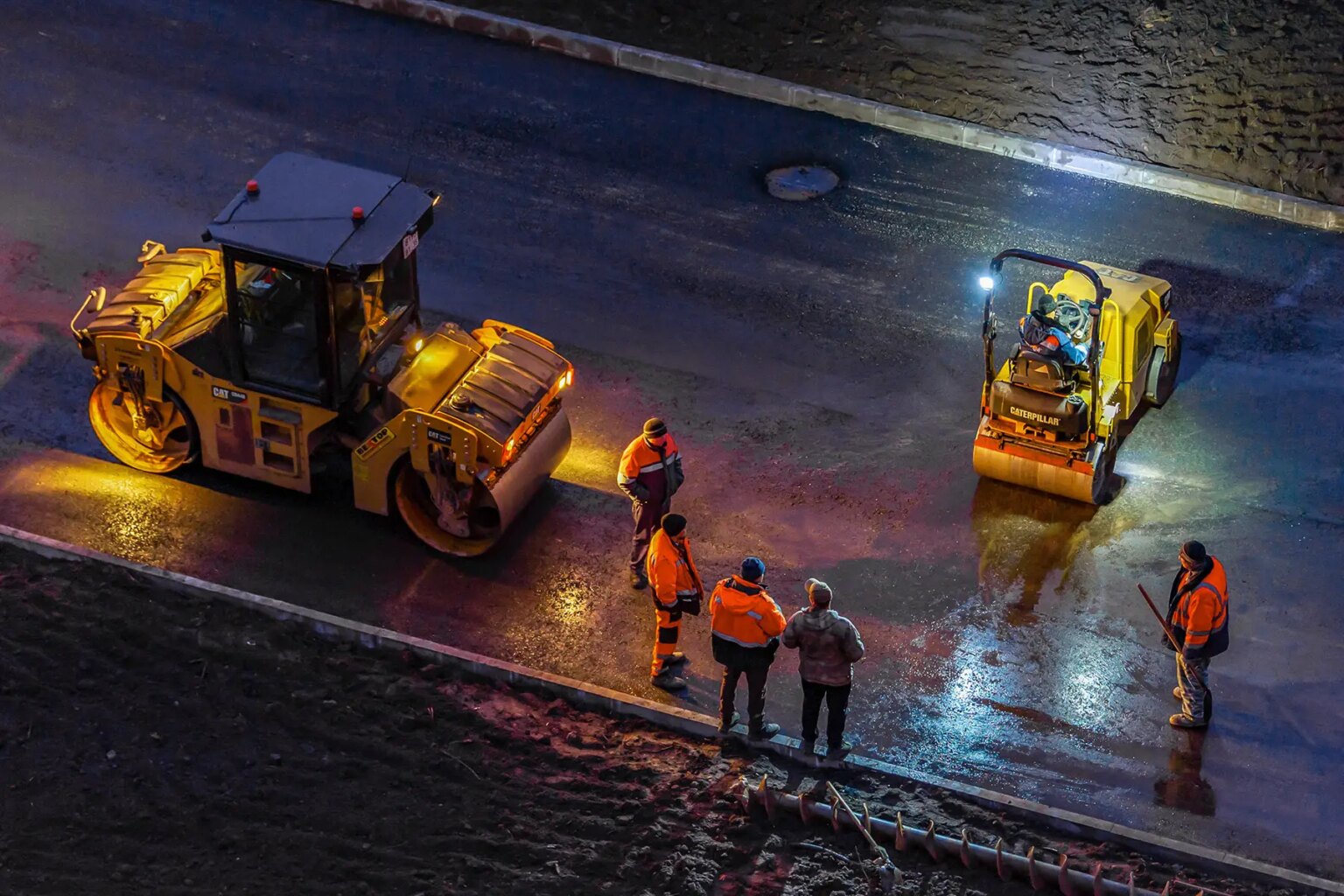Important notice from the Editor in Chief
Maintaining our Russian site is a delicate matter during the war. We have chosen to keep its content online to help our readers, but we cannot ensure that it is accurate and up to date. Our team endeavors to strike the right balance between giving information to those who need it, and respecting the gravity of the situation.
The Russian minimum wage has risen significantly in recent years, but it’s still low compared the European average.
Russia’s earnings landscape is also pretty unequal – those working in regions rich in national resources tend to earn a lot more than those elsewhere. The salaries for foreigners from low-income countries tend to be lower, and the country has a large gender pay gap.
To find out about minimum wage law and how much you’ll earn as an international, explore the following sections:
- Minimum wage in Russia in 2025
- Exclusions and variations to Russia’s minimum wage
- Salaries and wages for international workers in Russia
- Average salary in Russia
- Gender pay gap in Russia
- What to do if you’re not being paid the minimum wage in Russia
- What to do if your salary is too low in Russia
- Useful resources
Minimum wage in Russia in 2025
In 2025, Russia’s official minimum wage is 22,440 ₽ per month, up from 17% from 2024. The government intends to increase this rate to 35,000 ₽ by 2030.
However, local governments can set their own minimum wages. As such, Russian minimum wage levels in cities such as Moscow and Saint Petersburg are considerably higher.

The minimum wage in Russia is known officially as the “Minimum labor pay rate” (Минимальный размер оплаты труда – МРОТ) or MROT, and it undergoes a review every six months. There were significant increases in each of the last three reviews.
Russia’s minimum wage is lower than those in European Union countries, but higher than those of its neighbors Azerbaijan, Belarus, China, Mongolia, and Ukraine.
Exclusions and variations to Russia’s minimum wage
The Russian minimum wage applies to a full-time work week of 40 hours. If you work part-time, your monthly wages will be a proportion of 22,440 ₽.
In practice, a lower minimum wage applies to under-16s, who may work up to 24 hours per week, and 16–18-year-olds, who can work up to 35 hours. Some sectors also have a shorter maximum working week.
All employees with an employment contract must receive at least the minimum wage, including interns and apprentices.
Variations by region in Russia
Although the official minimum wage is 22,400 ₽, there are variations across Russian regions. Most regions use the official minimum wage, but it is higher in the following areas:
- Moscow: 32,916 ₽
- Moscow region: 23,000 ₽
- St. Petersburg: 28,750 ₽
- Leningrad region: 23,800 ₽
- Republic of Bashkortostan: 23,719.08 ₽
- Krasnodar Krai: 23,562 ₽
- Stavropol Krai: 26,094 ₽
- Kaliningrad: 23,000 ₽
- Tatarstan: 23,200 ₽ (for non-government workers)
- Altai Krai: 24,570 ₽ (for non-government workers)
- Volgograd region: 24,684 ₽ (for non-government workers)
- Kemerevo region: 26,928 ₽ (for certain businesses)
- Kirov region: 23,562 ₽ (for non-government workers)
- Omsk region: 22,740 ₽ (for certain workers)
Salaries and wages for international workers in Russia
Nearly 90% of international workers in Russia came from Uzbekistan, Tajikistan, and Kyrgyzstan in 2024. According to Uzbek news site Daryo, these workers earn an average of $597, or 49,547 ₽ per month, and usually work in construction and service professions. Although their average wage is well above the minimum, their working conditions are often unstable, with shared accommodation and no contracts or medical insurance.
Furthermore, internationals on a Work Permit for Highly Qualified Professionals (Высококвалифицированные иностранные специалисты) working in an approved profession have a minimum salary requirement of 250,000 ₽ per month. The highest-paid profession available to foreigners in Russia will pay 380,000 ₽ per month in 2025.
Average salary in Russia
The average monthly salary in Russia was 84,000 ₽ in 2024, according to official statistics. This is an increase on 2023 (73,709 ₽) and 2022 (65,338 ₽).
Russia’s average salary lower than those of its former companions in the OECD, where annual wages reached $58,232 in 2023.

Like minimum wage, average salaries vary widely across Russia. The lowest average monthly wage in 2024 was in Ingushetia (35,975 ₽), while the highest was in Chukotka (189,790 ₽). Meanwhile, in areas popular with expats, such as Moscow and St. Petersburg, the average wages were 162,124 ₽ and 108,317 ₽ per month, respectively.
Average salary in Russia by sector
Salaries also vary depending on the sector you work in. According to Paylab’s surveys, these are the average monthly wages in different industries in Russia:
| Sector | Average monthly pay (₽) |
| Information technology | 171,164 |
| Leasing | 93,474 |
| Technology and development | 91,385 |
| Telecommunications | 81,980 |
| Law and legislation | 80,535 |
What are the highest-paying jobs in Russia?
Statista lists the following jobs as being the highest-paid in Russia:
| Role | Average monthly pay (₽) |
| Surgeon | 386,000 |
| Judge | 324,000 |
| Lawyer | 262,000 |
| Bank manager | 247,000 |
| CEO | 232,000 |
Salary checker in Russia
Not sure if your salary is in line with your responsibilities? Online tools such as Paylab can give you insight into whether your pay matches others in similar roles. Meanwhile, you can compare wages according to roles on Payscale.
Gender pay gap in Russia
According to government statistics, women in Russia earn an average of 61,113 ₽, while men earn 87,757 ₽, representing a gender pay gap of around 30%.
Survey data from Statista confirms this amount, with the largest pay gaps in Information and communication (32%), and the lowest in education (5%). By federal district, the biggest gap is in the Urals (33%), while the North Caucasian federal district has the smallest (18%).

Russia does have legislation that aims to ensure equal pay, but considering that the average global gender pay gap is around 20%, it has not caught up with other countries, and there is still plenty of room for improvement.
What to do if you’re not being paid the minimum wage in Russia
If you’re not being paid the minimum wage in Russia, you should first speak to your employer to bring it to their attention. Should they not rectify the situation, you can then file a complaint with the Federal Service for Labor and Employment (Федеральная служба по труду и занятости – Роструд), or Rostrud. They should order your employer to pay the legal wage.
If this provides no results, you can also pursue legal action, such as a lawsuit for unpaid wages.
What to do if your salary is too low in Russia
Russian law prohibits discrimination in employment, including in pay. If you feel your salary is unfairly low, you can take steps to address it.
First, dispute the discrepancy with your employer. Gather evidence to demonstrate your qualifications, job responsibilities, and salary details – if possible, compare these with those of your colleagues.
If internal resolution doesn’t work, you can file a complaint with Rostrud or seek legal action through the Prosecutor’s Office.
There are also trade unions in Russia that may be able to support you in wage disputes, but they are generally aligned with the Russian government and are of questionable effectiveness.
Useful resources
- Paylab – take a survey to find out if your salary matches what others earn
- Payscale – compare wages for different roles
- Prosecutor’s Office – for legal action in employment matters
- State Labor Inspectorate – file complaints about workers’ rights violations




